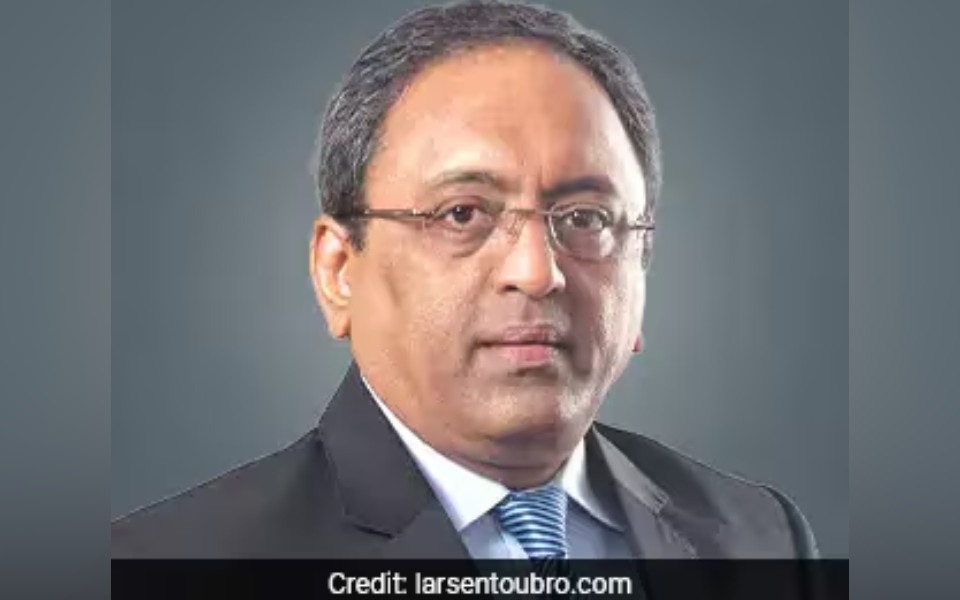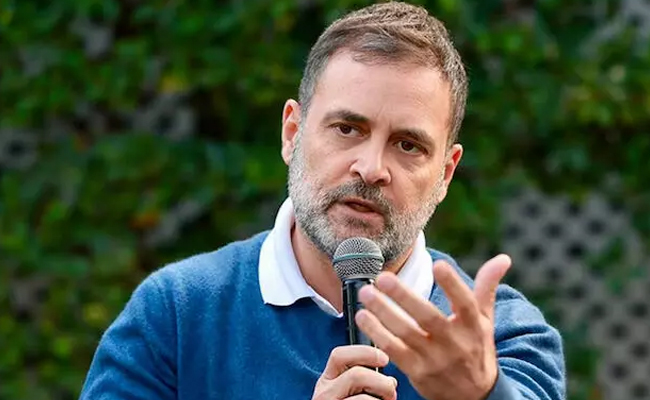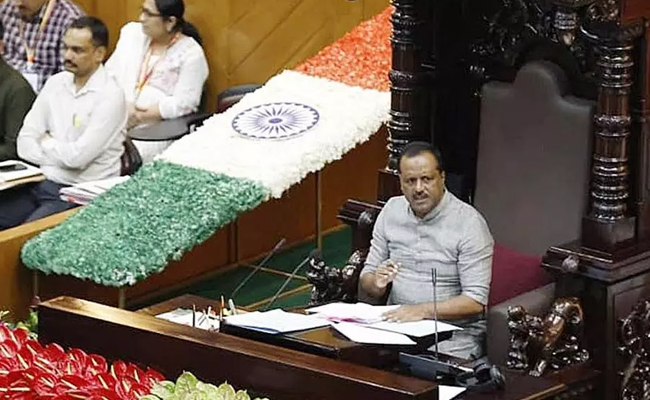New Delhi, Jan 9: Larsen & Toubro (L&T) Chairman S N Subrahmanyan sparked an online outrage with his comments advocating a 90-hour work week and suggesting that employees should even give up Sundays.
"How long can you stare at your wife," he is heard saying in a purported video address to employees where he urged them to spend less time at home and more in the office.
His remarks reignited the work-life balance debate, first triggered by Infosys Co-Founder Narayana Murthy's suggestion of a 70-hour work week.
"I regret I am not able to make you work on Sundays. If I can make you work on Sundays, I will be more happy, because I work on Sundays," Subrahmanyan is heard saying in an undated video circulating on social media.
"What do you do sitting at home? How long can you stare at your wife? How long can the wives stare at their husbands? Come on, get to the office and start working," he further said.
His comments drew criticism on social media with some asking how long could "employees stare at screens and fat*** managers?"
Soon after, L&T issued a clarification saying the chairman's remarks were in the context of extraordinary efforts required for achieving extraordinary outcomes for the nation.
"We believe this is India's decade, a time demanding collective dedication and effort to drive progress and realise our shared vision of becoming a developed nation.
"The chairman's remarks reflect this larger ambition, emphasising that extraordinary effort," L&T spokesperson said in a brief statement.
Stating that nation-building is at the core of L&T's mandate, it said for over eight decades, the company has been shaping India's infrastructure, industries, and technological capabilities.
"At L&T, we remain committed to fostering a culture where passion, purpose, and performance drive us forward," the spokesperson added.
In the video, Sumeet Chatterjee, Chief Communications Officer at L&T, is seen asking the chairman, "Why are L&T employees asked to work on Saturdays despite being a top conglomerate?"
In response, the chairman says, "I regret I am not able to make you work on Sundays, to be honest. If I can make you work on Sundays, I will be more happy, because I work on Sundays also."
Subrahmanyan went on to share an anecdote. He cited a conversation he had with a Chinese person who said that China could surpass the US because of the country's strong work ethic.
According to Subrahmanyan, the Chinese person said, "Chinese people work 90 hours a week, while Americans work only 50 hours a week."
Drawing a parallel, Subrahmanyan encouraged L&T employees to follow a similar work regime.
"So that's the answer for you. If you have got to be on top of the world, you have to work 90 hours a week," he is heard saying in the video.
The video went viral quickly, attracting some nasty comments as well. "Another CEO promoting slavery shamelessly," one person commented.
Some questioned why highly paid CEOs with different job pressures expect the same level of commitment from less-paid employees.
Subrahmanyan's comments reignited the work-life balance debate that came into limelight in July last year following the death of a 26-year-old EY consultant.
Infosys Co-Founder Murthy, too, had a few months back advocated a 70-hour work week. "India's work productivity is one of the lowest in the world... my request is that our youngsters must say, 'this is my country, I want to work 70 hours a week'," Murthy had said.
Last month, billionaire Gautam Adani had also waded into the work-life balance debate when he said the spouse will leave if one was to spend eight hours with the family.
He had reportedly stated that work-life balance is a matter of personal choice. "Your idea of work-life balance should not be imposed on me and my idea shouldn't be imposed on you. Say, someone spends 4 hours with family and finds joy in it, or if someone else spends 8 hours and enjoys it, that is their work-life balance."
"Aath ghanta family ke saath bitayega tho biwi bhaag jaayegi (Wife will leave if one spends eight hours with family)," he had said.
L&T Chairman #SNSubrahmanyan wants employees to work 90 hours a week, because how long can you stare at your husband/wife.
— NDTV Profit (@NDTVProfitIndia) January 9, 2025
Is this toxic culture sustainable? @TamannaInamdar asks 'The Big Question'
Also read: https://t.co/qCiB0PQxcP pic.twitter.com/TS2BUe39ut
Let the Truth be known. If you read VB and like VB, please be a VB Supporter and Help us deliver the Truth to one and all.
Hyderabad (PTI): Leader of the Opposition in the Lok Sabha, Rahul Gandhi, will attend the GOAT India Tour event featuring football legend Lionel Messi at the RGI Cricket Stadium here on Saturday evening, Telangana Congress sources said.
A friendly match will be played between the two teams -- Singareni RR9 and Aparna-Messi All Stars. These two teams will be playing a 15-20 minute friendly match and five minutes before the game, Chief Minister Revanth Reddy, a football enthusiast and Messi will join and will dribble the ball together.
Rahul Gandhi will land here on a special flight at 4.30 PM and will proceed to Taj Falaknuma Palace Hotel where Messi will be staying.
After watching the game, Gandhi will leave for the national capital by 10.30 PM.
Elaborate security arrangements are being made for the event at the RGI Cricket stadium.
Rachakonda Police Commissioner Sudheer Babu said security would be provided with 3,000 personnel.





